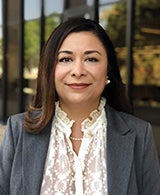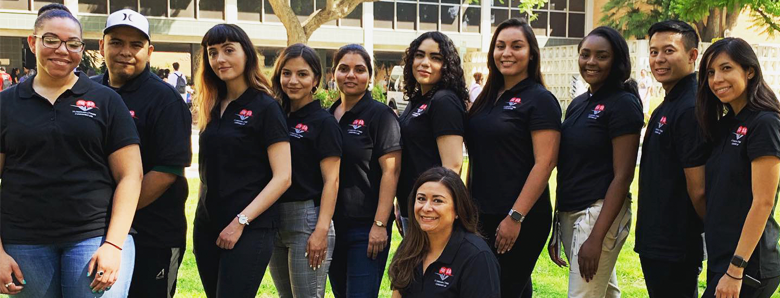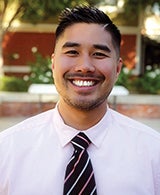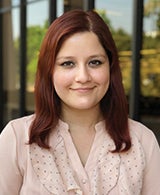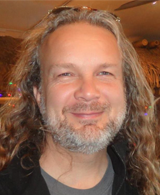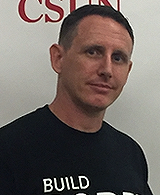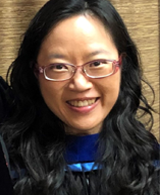Leadership Team
Carrie Saetermoe
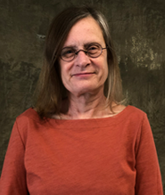
Carrie Saetermoe
CSUN Department of Psychology, PI BUILD PODER, Co-Director, HERE Center
Email: carrie.saetermoe@csun.edu
Phone: (818) 677-4860
Office: Lilac Hall
Biography
Carrie Saetermoe, Professor of Psychology, Co-Director of the Health Equity Research and Education (HERE) Center, and one of four Principal Investigators, along with three other PIs, Gabriela Chavira, Patchareeya Kwan, and Crist Khachikian who are leading California State University, Northridge’s largest federal grant ever, funded by the National Institutes of Health, BUILD PODER – Building Infrastructure Leading to Diversity; Promoting Opportunities for Diversity in Education and Research.
Throughout her career, Saetermoe has collaborated on projects related to generating educational and health equity and research ethics at CSUN, in Los Angeles, and in Guatemala. As a Liberation Psychologist, Saetermoe frames her work with a critical, humanistic lens, asserting that capitalist white supremacy has laid the groundwork for laws, policies, and ideologies that lead to a normalized way of seeing morbidity and mortality as purely individual, racial, or neighborhood-based, when the root source of disparity, the fallout of economic inequality, continues to exacerbate; then, we are obligated to help communities cope with unnecessary asthma, diabetes, obesity, and other preventable diseases.
“When the biomedical workforce is diversified, researchers will likely draw upon a broader array of healthcare frameworks, research questions, methodologies, and participant recruitment techniques that can overcome many barriers to health equity for at-risk communities” (Saetermoe, Chavira, Khachikian, Boyns, and Cabello, 2017, p. 42).
Publications
- Vargas, J. H., Saetermoe, C. L., & Chavira, G. (2020). Using critical race theory to reframe mentor training: theoretical considerations regarding the ecological systems of mentorship. Higher Education, DOI 10.1007/s10734-020-00598-z.
- Byars-Winston, A.,Womack, V. Y., Butz, A. R., McGee, R., Quinn, S. C., Utzerath, E., Saetermoe, C. L., & Thomas, S. (2018). An Intervention to Increase Cultural Awareness in Research Mentoring: Implications for Diversifying the Scientific Workforce Academic Medicine. Clinical and Translational Science.
- Saetermoe, C. L., Chavira, G., Khachikian, C., Boyns, D., & Cabello, B. (2017). Critical Race Theory as a Bridge in Science Training: The California State University, Northridge BUILD PODER Program. Biomedical Central Proceedings, 11(Suppl 12) pp. 21.
- Plunkett, S. W., Saetermoe, C. L., & Quilici, J. (2014). Evaluation of an Undergraduate Social Sciences Pre-Doctoral Program Using Self-Report Data from Under-Represented Student Participants. Council on Undergraduate Research, 35(1), 36-42.
- Hernandez, M. G., Nguyen, J., Saetermoe, C. L., & Suarez-Orozco, C. (Eds., 2013). Frameworks and Ethics for Research with Immigrant Families. New Directions in Child and Adolescent Development, 141.
- Nguyen, J., Hernandez, M. G., & Saetermoe, C. L. (2013). Frameworks and ethics for research with immigrant families. In M. G. Hernandez, J. Nguyen, C. L. Saetermoe, & C. Suarez-Orozco, C. (Eds.), Frameworks and Ethics for Research with Immigrant Families. New Directions in Child and Adolescent Development, 141, 43-60.
- Hernandez, M. G., Nguyen, J., Casanova, S., Suarez-Orozco, C., & Saetermoe, C. L. (2013). A Guide for Research with Immigrant Children, Adolescents, and their Families: Ethical and Methodological Considerations. In M. G. Hernandez, J. Nguyen, C. L. Saetermoe, & C. Suarez-Orozco, C. (Eds.), Frameworks and Ethics for Research with Immigrant Families. New Directions in Child and Adolescent Development, 141, 43-60.
- Cordón, I. M., Saetermoe, C. L., & Goodman, G. S. (2005). Facilitating children’s accurate responses: Conversational rules and interview style. Applied Cognitive Psychology, 19, 249-266.
- Saetermoe, C. L., Gómez, J., Bámaca, M., & Gallardo, C. (2004). A qualitative enquiry of caregivers of adolescents with severe disabilities in Guatemala City. Disability and Rehabilitation, 26, 1032-1047.
- Saetermoe, C. L., Scattone, D., & Kim, K. H. (2001). Ethnicity and the stigma of disabilities. Psychology and Health, 16, 699-714.
- Saetermoe, C. L., Beneli, I., & Busch, R. M. (1999). Perceptions of adulthood among Anglo and Latino parents. Current Psychology, 18(2), 21-34.
- Saetermoe, C. L., Farruggia, S. P., & Lopez, C. (1999). Differential parental communication with adolescents who are disabled and their healthy siblings. Journal of Adolescent Health, 24(1), 2-9.
- Widaman, K. F., Saetermoe, C. L., & Borthwick-Duffy, S. (1995). Parenting Style Survey. Princeton, NJ: Educational Testing Service.
- Saetermoe, C. L., Widaman, K. F., & Borthwick-Duffy, S. (1991). Validation of the Parenting Style Survey for parents of children with mental retardation. Mental Retardation, 29(3), 139-157.
Research Projects
- Training Faculty Members
Recognizing the high workload and rapid pace of faculty life at a comprehensive university like CSUN, I proposed an NIH Minority Research Infrastructure Support Program (M-RISP). I was a frequent inspirational speaker at CSUN’s New Faculty Orientation, encouraging other faculty members to follow a course similar to mine where I had freedom to choose my own activities. I began to be seen as a leader, organizing faculty for M-RISP for educational workshops and speakers as well as subproject support. Subsequently, I wrote a successful proposal for an NIMHD Research Infrastructure in Minority Institutions (RIMI) Program to support the development of faculty members and students by building a community around health equity research. Many new faculty members in the College of Health and Human Development were ready to write NIH grants, but had few skills, so we supported them in their grant-writing through subprojects, workshops, speakers, and a tiered mentoring network of scholars that ultimately transformed and expanded for NIH BUILD (Building Infrastructure Leading to Diversity). CSUN’s NIGMS BUILD PODER (Promoting Opportunities for Diversity in Education and Research) expands our reach by providing high-quality, challenging mentor training with a lens of Critical Race Theory (CRT).
After more than a decade of support from the NIH, it became apparent that many students did not see STEM and biomedical sciences as applicable to themselves and they did not apply for programs like COR and RIMI. Infrastructure changes expanding our definition of “biomedical” to the health and social sciences allowed us to develop a 16-hour mentor training program that builds a bridge between faculty and students whose cultural and socioeconomic backgrounds are often at odds. Facing race and ethnicity head-on, we train mentors and build a culture around health equity as a social justice issue. Therefore, faculty and students in BUILD share a CRT framework, they share research and social activities, and are part of an intentional community of role model-scholars. BUILD also supports faculty members with respect to grant-writing (Faculty Scholar Academy) and pilot projects, writing and editing circles, faculty exchanges with research partners and curriculum development.
- Saetermoe, C. L., Chavira, G., Khachikian, C., Boyns, D., & Cabello, B. (2017). Critical Race Theory as a Bridge in Science Training: The California State University, Northridge BUILD PODER Program. Biomedical Central. Proceedings, Supplement 11(12).
- Byars-Winston, A.,Womack, V. Y., Butz, A. R., McGee, R., Quinn, S. C., Utzerath, E., Saetermoe, C. L., & Thomas, S. (2018). Pilot study of an intervention to increase cultural awareness in research mentoring: Implications for diversifying the scientific workforce. Journal of Clinical and Translational Science, 2, 86-94. doi:10.1017/cts.2018.25.
- Vargas, J. H., Saetermoe, C. L., & Chavira, G. (2020). Using critical race theory to reframe mentor training: theoretical considerations regarding the ecological systems of mentorship. Higher Education, DOI 10.1007/s10734-020-00598-z.
- Training Undergraduate Students
As a student researcher on an NICHD grant during my doctoral years, I recognized the value of hands-on training on a funded research environment. Striving to support others as I have been supported, I have written and completed many grants that support students, most from the NIH: MBRS, M-RISP, COR, RIMI, and now BUILD. These programs have built upon one another, become increasingly interdisciplinary, and increasingly built on Critical Race Theory and social justice. This privilege has extended to faculty members (below) and cannot be taken out of its sustainable, institutionalized context – NIH has been funding highly successful programs that have both changed our institution’s curriculum and practices, and generated a campus discussion about the role of research and teaching at a comprehensive institution.
An example of this work is NIMH Career Opportunities in Research, funded in 2001 after Saetermoe had 9 years of interacting with CSUN’s rich student body. Ultimately, COR was highly successful in training undergraduates who moved on to doctoral programs (59.6%) or other degrees (36.5%) in psychology or allied fields. Students from the program are now neuroscientists, professors, social workers, researchers, and graduate students. COR honors courses laid the foundation for subsequent NIH-funded initiatives (RIMI, BUILD) and provide hundreds of students beyond NIH-funded programs with extraordinary educational opportunities that bolster the likelihood of doctoral admissions. Other courses, spaces, and resources (libraries, podcasts of training, equipment) remain available for students in our network. As an extension of COR, students worked with local nonprofits, donating their time as data analysts for My Friend’s Place, a day center for homeless youth, the San Fernando Valley Child Guidance Center, LA Koreatown Youth and Community Center, among others.
- Plunkett, S., Saetermoe, C. L., & Quilici, J. L. (2014). An Evaluation of the Undergraduate Career Opportunities in Research (COR) Program. Council on Undergraduate Research Quarterly, 35(1), 36-42.
- Disability and the Transition to Adulthood in the U.S. and in Guatemala
During my doctoral years, I worked with Widaman, Duffy, and Eyman on an NICHD grant on families with children who are mentally retarded. There, I learned the parenting and disability literatures, and ethnographic, survey development, and multi-trait-multimethod analyses that would be instrumental to my later research career. This work in parenting led to the publication of the Parenting Style Survey by the Educational Testing Service (ETS). At CSUN, I learned about Latina/o cultures from my surroundings, students, and colleagues, recognizing and appreciating that developmental processes varied based on cultural values and practices, cultural nuances existed that I hadn’t known, and that this knowledge must be integrated into theory and empirical work in disabilities. Based on empirical work in Guatemala with a student (Bamaca), I took a delegation of undergraduates on two occasions to work at FUNDABIEM, a nonprofit rehabilitation center in Guatemala City. There, we conducted research and volunteered two summers, fund-raised and brought out wheelchairs, therapeutic materials, and other resources for the children and adolescents who attend there. We developed workshops for parents on disability stigma, prenatal nutrition, talking with your doctor, and a variety of other topics devised from our first trip. We maintain our relationship with psychology professors from Universidad de San Carlos de Guatemala. Based on these data funded by the U.S. Department of Education (CIRRIE) as well as two MBRS awards, I am working on a book related to the transition to adulthood of youth who are White, Latina/o, and those who are from Guatemala. The book will be written as a trade book for parents, teachers, and medical care workers of youth with disabilities in a way that draws upon empirical studies and current theories about resilience and positive psychology.
- Saetermoe, C. L., Farruggia, S. P., & Lopez, C. (1999). Differential Parental Communication with Adolescents Who Are Disabled and Their Healthy Siblings. Journal of Adolescent Health, 24(1), 2-9.
- Saetermoe, C. L., Scattone, D.*, & Kim, K. H.* (2001). Ethnicity and the stigma of disabilities. Psychology and Health, 16, 699-714.
- Saetermoe, C. L., Gómez, J., Bámaca, M., & Gallardo, C. (2004). A qualitative enquiry of caregivers of adolescents with severe disabilities in Guatemala City. Disability and Rehabilitation, 26, 1032-1047.
- Saetermoe, C. L., Widaman, K. F., & Borthwick-Duffy, S. (1991). Validation of the parenting style survey for parents of children with mental retardation. Mental Retardation, 29(3), 139-157.
- Life Chances for Latina/o Youth
Funded by the National Institute of Mental Health’s M-RISP program, this grant was for empirical work that tracks four cohorts of adolescents whose parents are immigrants from Mexico but who (students) were born in the US: (1) 6th—8th grade high achieving students, (2) 6th—8th grade low achieving students, (3) 11th grade – 1 year beyond high school high achieving students, and (4) 11th grade – 1 year beyond high school low achieving students. We followed 40 families for 3 years. We have analyzed 80 transcriptions for each time of measurement (40 families, adolescent and parent interviews = 400 interviews) and over 50 transcriptions of focus groups and interviews with teachers and counselors at the schools where we recruit our participants. Currently, the book has been developed to reach high school students and their parents as the narratives presented provide stories of success and crossroads that can be used for family decision-making.
- Saetermoe, C. L., Beneli, I., & Busch, R. M. (1999). Perceptions of Adulthood Among Anglo and Latino Parents. Current Psychology, 18(2), 21-34.
- Saetermoe, C. L. (2008). Cultural Competence in Developmental Science Pedagogy. SRCD Developments, 51(4), 3.
- Saetermoe, C. L., Pedraza, K., Zepeda, R., Estrada, K., Alcala, L., & Guzman, E. (resubmitting). ¡Oh, Si Puedo Ir a la Universidad! (Oh, Yes, We Can Go to College!) in English and Spanish, a book for families and students of middle and high school students based on an NIMH grant and illustrated by students from the originating school. Submitted to Guilford Press, now we’re looking for a literary agent for McGraw Hill or a larger audience.
- Research Ethics with Immigrant Families
Working with immigrant families, many researchers are unclear about the ethical issues that may undermine their work and/or their participants. Saetermoe, Hernandez, and Nguyen met at the Society for Research in Child Development and at the Society for Research in Adolescence for 4 years with top scholars who contributed to this volume on research ethics with immigrant families.
- Hernandez, M. G., Nguyen, J., Saetermoe, C. L., & Suarez-Orozco, C. (Eds., 2013). Frameworks and Ethics for Research with Immigrant Families. New Directions in Child and Adolescent Development, v 141.
- Hernandez, M. G., Nguyen, J., Casanova, S., Suarez-Orozco, C., & Saetermoe, C. L. (2013). An ethical frame for research with immigrant families. In M. G. Hernandez, J. Nguyen, C. L. Saetermoe, & C. Suarez- Orozco, C. (Eds.), Frameworks and Ethics for Research with Immigrant Families. New Directions in Child and Adolescent Development, 141, 1-7.
- Nguyen, J., Hernandez, M. G., & Saetermoe, C. L. (2013). Doing no harm and getting it right: guidelines for ethical research with immigrant communities. In M. G. Hernandez, J. Nguyen, C. L. Saetermoe, & C. Suarez-Orozco, C. (Eds.), Frameworks and Ethics for Research with Immigrant Families. New Directions in Child and Adolescent Development, 141, 43-60.


